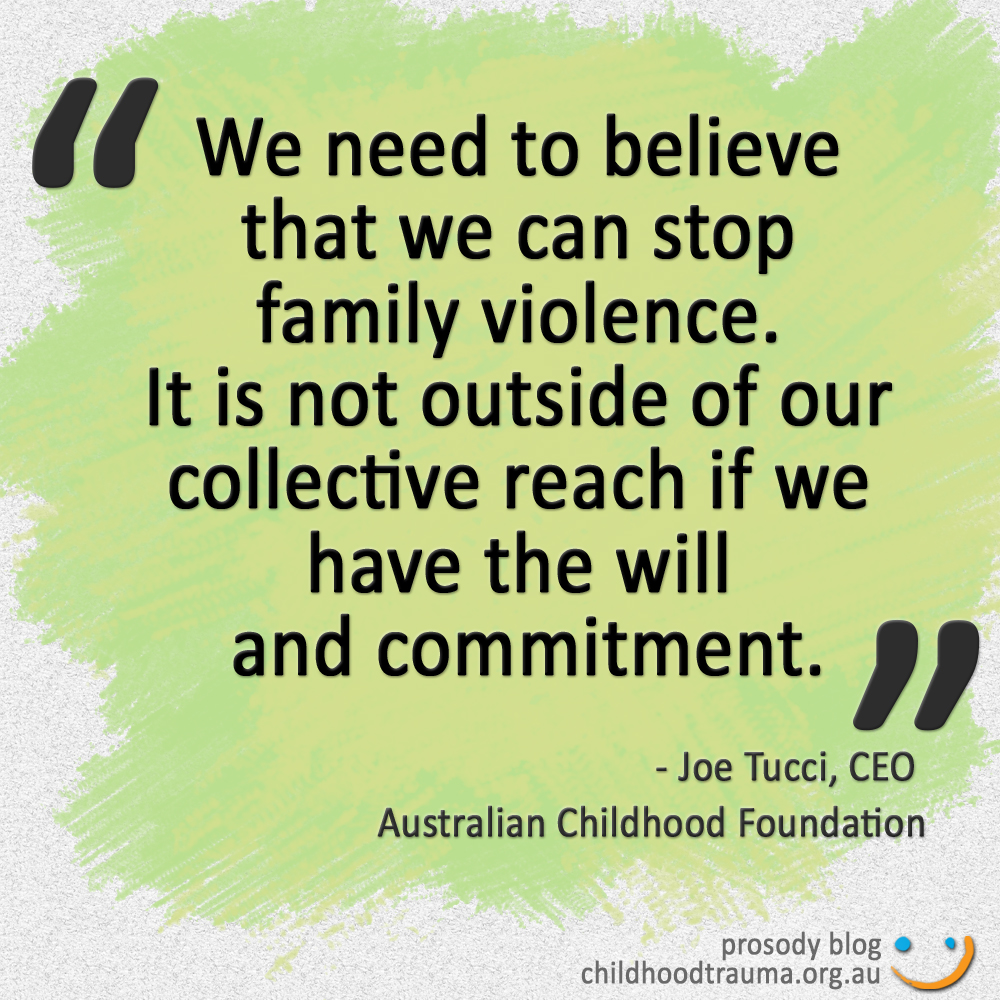
Luke’s life matters
This article was authored by Joe Tucci,
CEO at the Australian Childhood Foundation.
A coronial inquest has begun into the death of a little boy who loved cricket and football. He was a little boy with a shining smile. He had gentle eyes.
Little Luke Batty was killed by his father at cricket training. The murder happened in front of children and other parents. It was supposed to have been like any other day – full of fun. It was supposed to celebrate the relationships that embrace children and encourage them to be the best they can be. It turned to a place full of terror and pain. It hurt then and hurts still to think about. It hurts so much that it feels easier to try to forget it now. Remembering it less gives us a chance to believe again that our children are safe with their families.
We need that certainty. There is a danger in that too. As we look to find the predictability in life again, we might stop letting Luke’s memory inspire us to change ourselves and the way we help women and children who are forced to live with violence at home still every day. There are so many things that need to change for women and children to be safe from family violence. In fact, this is the first problem we need to address. We need to believe that we can stop family violence. It is not outside of our collective reach if we have the will and commitment. That is why it is important to start with a part of the problem that we can actually change. Right now, we do not treat family violence as a serious crime that warrants a strong and unequivocal response from the police. We say it is. We want to believe it is. But it just isn’t.
Less than half of the family incidents that police in Victoria attended last year led to any charges being laid. There are no statistics available publicly to know how many of these charges actually turned into convictions. But, in my experience, it is low. Perpetrators are given the message that they can be violent and get away with it. Some of them stop of course. Many continue to be violent. Many use deliberate tactics to keep women and children on edge and frightened. They send texts that distort the truth. They say they will change and never do. They threaten to harm children if mothers do not follow their demands. That is how family violence works. It is months and years of insidious torture punctuated with aggression and violence. If there is an intervention order that says that perpetrators cannot come within 100 meters of their family, they move into houses 150 meters away. If there is an order that a child needs to be returned at 4pm on a Saturday after access, they return the child at 6.00pm. They know how to manipulate the system for their own ends. They corrupt what feels normal and fill every day with fear. These are all acts of terrorism aimed at undermining the confidence of women and making it impossible for them to live a normal life. In these events, children are the collateral damage of misconstrued power in the guise of love. Every act by a perpetrator of family violence pushes the boundaries.

Every act is aimed at reinforcing their control. Without the backup of the law, women are far too often left to negotiate their safety and the safety of their children with the perpetrator of the violence. Real safety never lasts when it is negotiated with a man who has been violent and threatens to keep being violent. We need to change family violence so that it is a crime against the state. There should not be discretion about charging a perpetrator with violence. There should not be discretion in convicting men who for even the smallest of failures to comply with intervention orders. Every breach should be met with the consequences that follow with breaking the law. The law should draw a line in the sand and all of us should expect that line to stay there. This kind of approach has been shown to act as an individual and public deterrent to further violence being committed. It is likely to be the only way that we can truly stop the perpetrators of family violence re-offending. It also communicates clearly to the whole of the community that the use of violence within relationships and families is unacceptable.
This sort of law reform can form the backdrop for all the other things we need to change to build better respect for women by men. These changes are achievable. In the shared grief of his family and community, the memory of Luke resonated with joy and the deepest of sorrows. On that terrible day at cricket training, we all know that his eyes looked for softness and found despair. It is his little face that we need to hold close in our hearts if we are to all feel safe again. If we don’t act, we will have forgotten Luke and all the other children who look to adults to protect them. We will have moved on and let the memory of his short life just fade.
